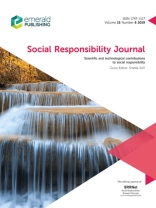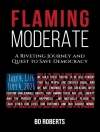Greenland, et al’s research investigates the impediments to the adoption of sustainable water-efficient technological innovation in agriculture, realising that while drip irrigation water efficiency is recognised this is not the key determinant of farmers’ irrigation selection. Krkac elaborates the currently fashionable topic of artificial intelligence in his conceptual paper and draws upon the literature and his previous works on the relationship between AI and human CSI. The supposedly radical development of artificial intelligence (AI) has raised questions regarding the moral responsibility of it. In the sphere of business, they are translated into questions about AI and business ethics (BE) and corporate social responsibility (CSR). This paper seeks to conceptually reformulate these questions from the point of view of two possible aspect-changes. Namely, starting from corporate social irresponsibility (CSI), and starting not from AIs incapability for responsibility but from its ability to imitate human CSR without performing typical human CSI. In a different area Raimi’s paper shows empirically that there is a positive relationship between CSR and sustainable management of solid wastes and effluents in Lagos Megacity; Rajesh describes in her literature review paper that human activities, household and industrial, generate enormous amount of waste material both organic and non-biodegradable which substantially contribute to land, water and air contamination. A general review paper by Tamayo and Vargas examines the use of biomimicry to inspire sustainable development in economic systems. They explore the link between ecological and economic systems in order to highlight applied environmental solutions. On the other hand, Greenand et al’s research into the demographics of sustainable technology consumption in an emerging market addresses gaps in the sustainable technology literature by evaluating the demographics of energy efficient appliance consumption in Vietnam. Gosh Ray’s research into a green cost calculus for corporate environmental responsibility shows that corporate environmental responsibilities are more of reputation-led rather than innovation- or efficiency-led and that some firms can simply comply with regulations at the society’s cost. He contends that unless the capital market supports corporate green initiatives, there may be destruction of shareholder wealth. And, Ismail explores in his technical paper optimising the safety of road transport workers on IBS building construction projects shows the improper handling and information management of road transport workers is a major safety concern in the Industrialised Building System (IBS) building construction industry.
Scientific and Technological Contributions to Social Responsibility [PDF ebook]
Cumpărați această carte electronică și primiți încă 1 GRATUIT!
Format PDF ● Pagini 124 ● ISBN 9781839094897 ● Editura Emerald Publishing Limited ● Publicat 2019 ● Descărcabil 3 ori ● Valută EUR ● ID 7319811 ● Protecție împotriva copiilor Adobe DRM
Necesită un cititor de ebook capabil de DRM












